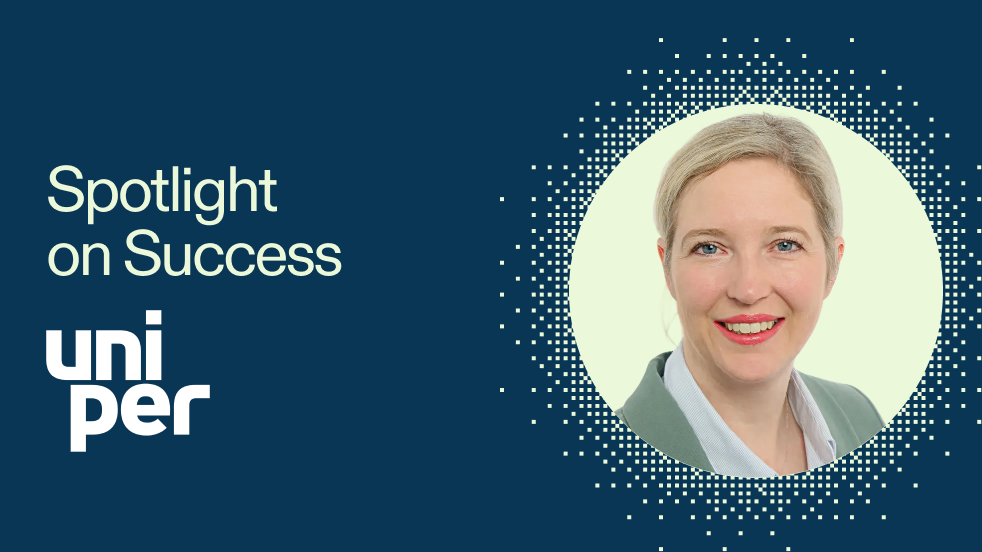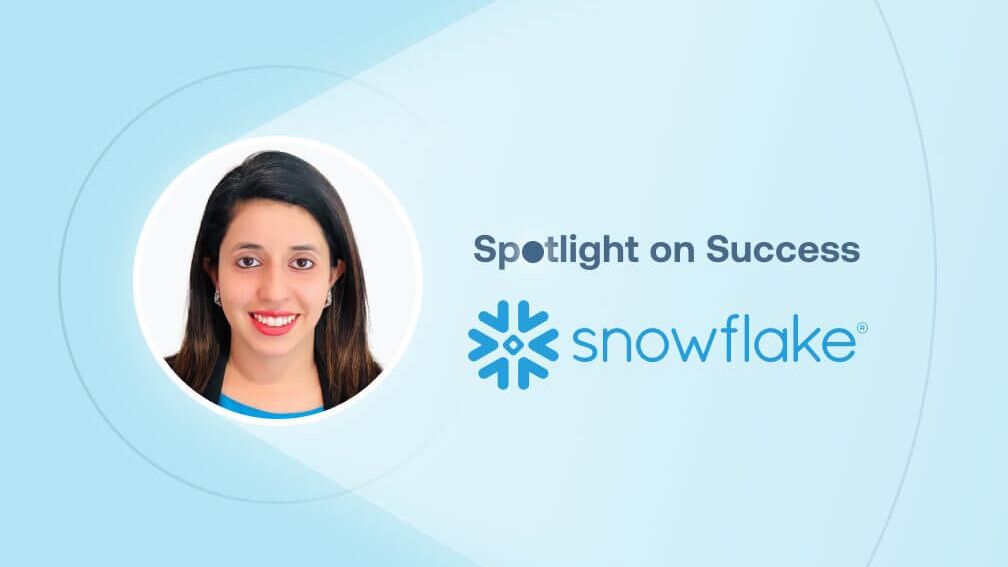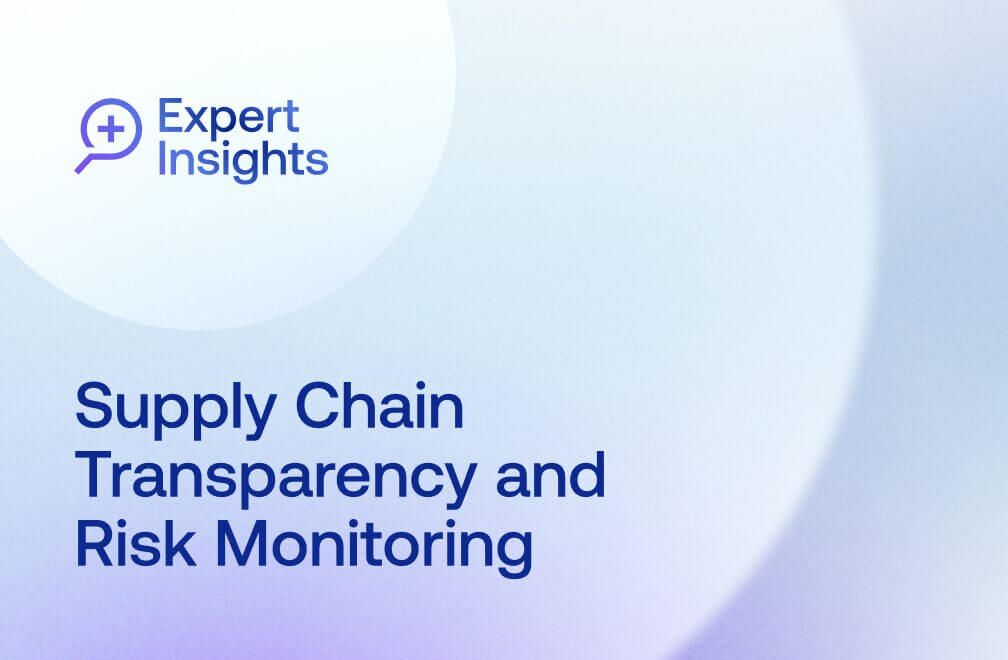
February 16, 2023 • 6 min read
Kiko Harvey of USC Thrives on Tackling the Problems That Matter
Join Richard Chambers for a new episode of his Agents of Change video series, featuring conversations with internal audit leaders from some of the world’s most prominent organizations about innovation in the profession.
In this episode, Richard sits down with Kiko Harvey, Associate Senior Vice President of Audit Services at the University of Southern California, former Inspector General at the UN World Food Programme, and former CAE of Delta Air Lines and Starbucks, to discuss how she keeps herself and her high-performing team engaged by seeking out new challenges and work that really matters, as well as:
- Building close ties to ERM to help audit stay ahead in an evolving risk environment.
- Knowing that you have a seat at the table when audit is sought out for advice and to help solve problems for the business.
- Embracing data analytics to identify big problems where audit should direct their attention.
- Leaning into remote work and learning to trust people who are getting their work done — no matter where they’re doing it.
Watch the full conversation, and read the can’t-miss highlights below.
Change Agents Thrive on Challenge and Learning New Things
Richard Chambers: I’ve known you for a long time, Kiko, and I’ve been so impressed by how agile you’ve been with your own career. You’ve made so many very important career moves [at Starbucks, Delta Air Lines, and the UN World Food Programme], and I’ve often thought of you as kind of the quintessential “agent of change” in our profession. In my book, I took the position that internal auditors that seek to drive change in their organizations by being catalysts for transformation are the real agents of change in our profession. Do you agree?
“Kiko Harvey: I do. I think that that’s a very appropriate way of looking at things. My changes have really been more from changing industries, learning new things, and meeting new people. And so as you described, I’ve had a lot of time in the private sector and publicly-traded companies, but then went on to humanitarian, and now I’m back in academia. It’s been great.”
Richard Chambers: As you’ve moved from one industry to another and one very iconic organization to another, you’ve taken the experiences and the transformational ideas with you, have you not?
“Kiko Harvey: Absolutely, and I’ve learned along the way. The organizations I’ve been with have been in various stages of maturity. When I was at Starbucks, I joined when it had just been public for about four years, and I was there a long time, when it was going through a growth stage, high-growth stage. Then I moved to a very mature industry with Delta Air Lines, which had just undergone a merger. It seems like change is something that really attracts me. It’s a challenge and I get bored easily — and I can honestly say I’ve not been bored.”
Having a Seat at the Table Means Being Sought Out to Help the Business Solve Problems
Richard Chambers: To me, that’s so indicative of people who are terrific change agents in their organizations. In the ones that you’ve served with, how have your board and management received the idea that internal audit can be change agents? Have they been supportive of that?
“Kiko Harvey: They have, and each organization has a different personality. I’ve worked in an international organization as well, so that takes on a whole different meaning because the board there were essentially ambassadors from different countries all over the world. They all have their different views on what audit should be and what we should focus on.”
Close Ties to ERM Helps Audit Keep Ahead of a Dynamic Risk Environment
Richard Chambers: In the past three years, we’ve been in an incredibly disruptive era. No period in my career — and I’m sure you would say the same, has been as dynamic and almost chaotic in terms of risk and risk management. As a CAE, how have you ensured that your internal audit functions have stayed abreast of the risks facing the organization given how quickly they seem to be coming and going?
“Kiko Harvey: Well, the historic view of audit is that you’re looking backward in the rearview mirror at transactions that have already happened, business processes that already exist, and you’re not really looking forward. A good risk manager is looking around the corner, looking forward through the windshield.”
Leading a High-Performing Team by Leaning Into Remote Work While Building Relationships With Sensitivity and Trust
Richard Chambers: One of the top challenges that CAEs are facing in 2023 is recruiting and retaining talent. Is that a challenge for you? And if so, what strategies are you using to attract and retain the top performers?
“Kiko Harvey: It’s been more of a challenge in the last couple of years. I think it’s starting to ease up a little bit now, and I’m not sure necessarily what’s causing that. Have we had trouble attracting talent? We really haven’t. I think that I’m blessed and I have an incredible team, and we’ve been able to staff our team very rapidly and with great people. I think you have to have an exciting place for people to be. They can’t be bored.”
Richard Chambers: One of the talent retention challenges has centered around this idea of working remotely, working in a central location. How are you handling the desires of your team to work remotely? Are there challenges to the model and how have you dealt with them?
“Kiko Harvey: There are challenges, and I think the challenges come more from the business model that we operate in. We are student-facing — they’re on campus, they’re in front of students, and a large part of our client base is student-facing. We also have a big health system and they’re patient-facing, so they’ve always been there even through COVID. When you’re more of a support assurance or administrative function, and you’re not student-facing and you’re not necessarily in the office every day, I think there’s a little bit of, I wouldn’t say resentment, but you’re very aware of that. So you want to make sure that whenever there’s a meeting that you find out whether or not the meeting is in person or remote, and then you go to campus and be in person if your clients are because it’s going to make it easier on you.”
Leveraging Data Analytics to Prioritize Bigger Problems
Richard Chambers: I think we’ve gotten much more adept at using technology and the tools, and that leads me to my next question. In the book I put forward the premise that before internal auditors can be considered credible change agents, they have to be seen as change agents within internal audit itself. So an internal audit department that’s still doing things exactly like it did 10 years ago is going to have a much more difficult time promoting change within the organization. Do you agree with that? And what initiatives have you undertaken to transform the audit departments that you’ve been a part of?
“Kiko Harvey: Well, we’re actually in the middle of a transformation or at the beginning of a transformation now. We’ve had a pretty traditional audit function with a sampling methodology that was, I would say, a little bit dated. Now we’re really starting to embrace data analytics a lot, looking at whole amounts of populations, looking for trends and patterns and data versus selecting judgmentally or biased or however you’re selecting a sample of 25 or 30. That’s just really not what we want to do because it doesn’t really give you a sense if you find something in there — how big is the problem really? And how pervasive is it? And I think we need to start answering those questions so that we know where to direct attention to. Not everything’s a big deal, but there are some big things and you need to find out what those are.”
Investing Communication That Builds Relationships and Embracing Big Data
Richard Chambers: I’m asked a lot by people to pull out my crystal ball and tell them what I think is going to happen to internal audit over the next 10 years. We’ve got several decades of internal audit experience between us. What do you think the biggest opportunities and maybe the biggest challenges for internal audit will be over the next 10 years?
“Kiko Harvey: I don’t know if it’s a change so much, but I do think communication is something that we need to get better at — and I’ve seen all sorts. I think actually the places I’ve been have done a nice job, but we have to get better at explaining very technical things to non-technical people sometimes. We have to be able to sift through what doesn’t matter as much to get to what matters a lot — and be able to bring people to our side in that area so that things get done and fixed.”
Richard Chambers: I understand. Kiko, thank you so much for the thoughtful responses to the questions today. It’s been great to catch up again, and I wish you the best of luck in leading the organizations and fostering the kind of change that you’ve done throughout your career.
Check out more audit leader interviews with Richard Chambers on our Agents of Change video series channel.
You may also like to read


How Uniper achieves greater audit transparency and impact

How Snowflake Uses Continuous Monitoring to Proactively Identify Risk

Enterprise e-commerce company transforms audit planning with Grant Thornton and AuditBoard

How Uniper achieves greater audit transparency and impact

How Snowflake Uses Continuous Monitoring to Proactively Identify Risk
Discover why industry leaders choose AuditBoard
SCHEDULE A DEMO



